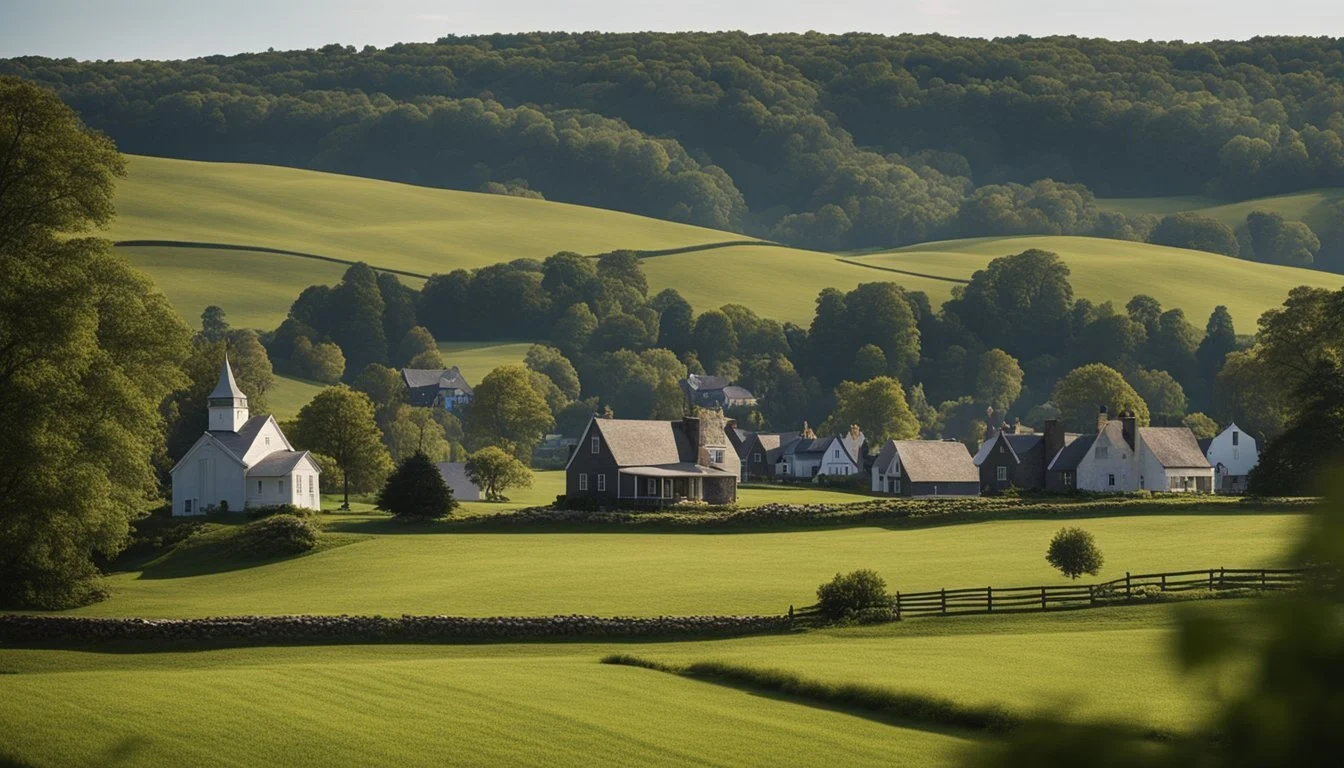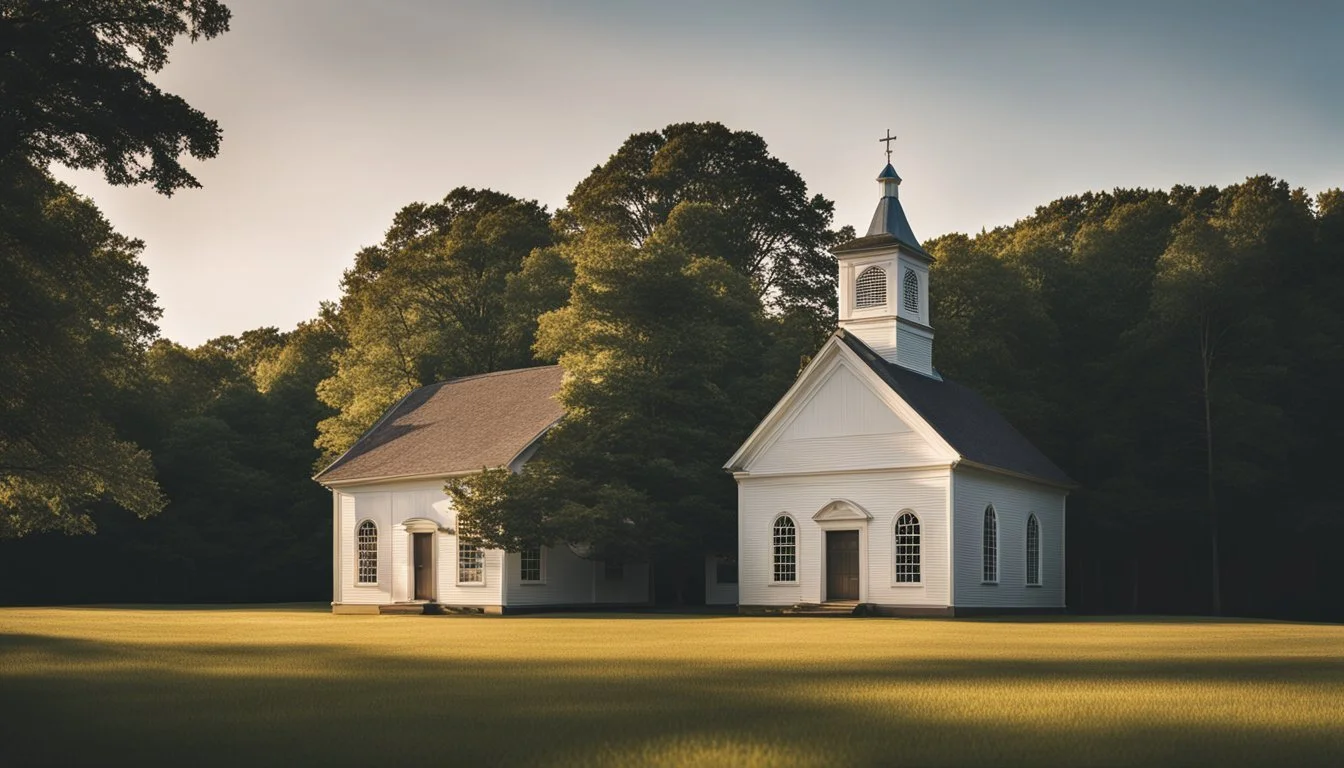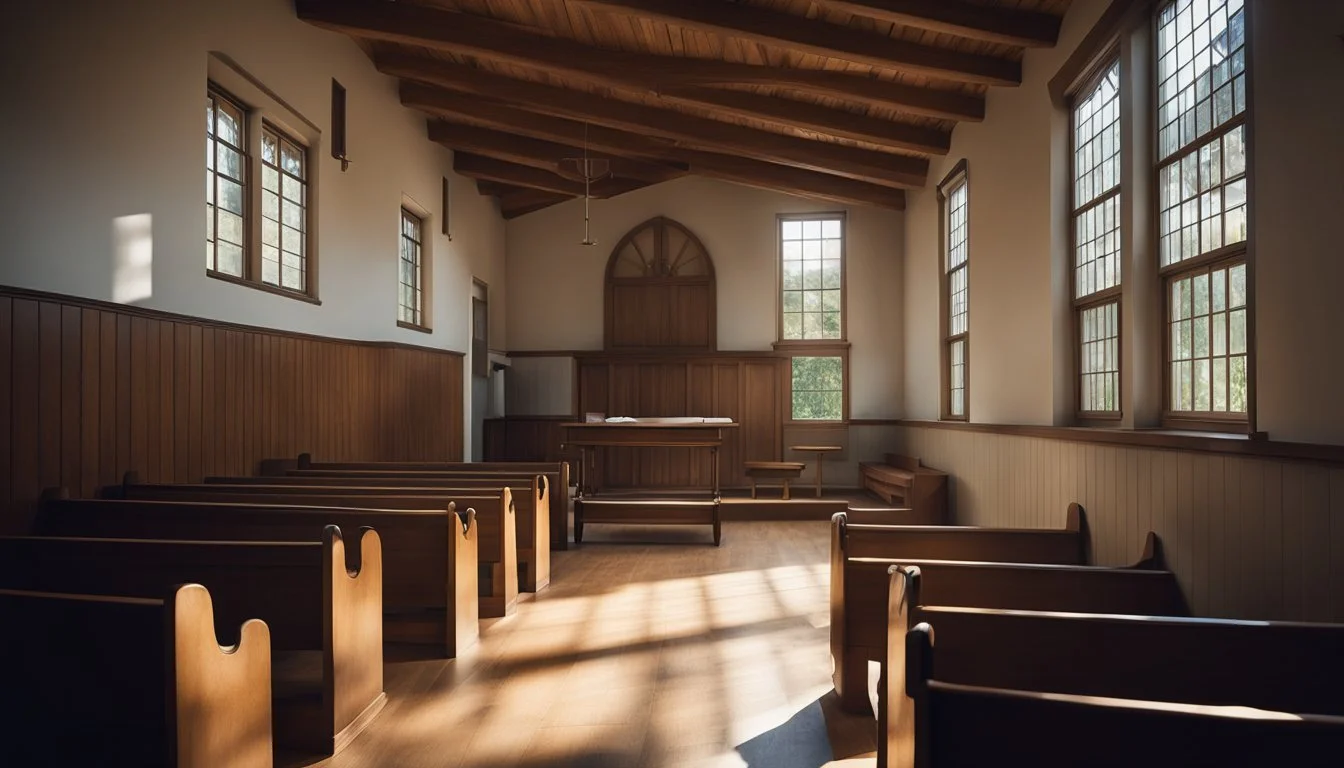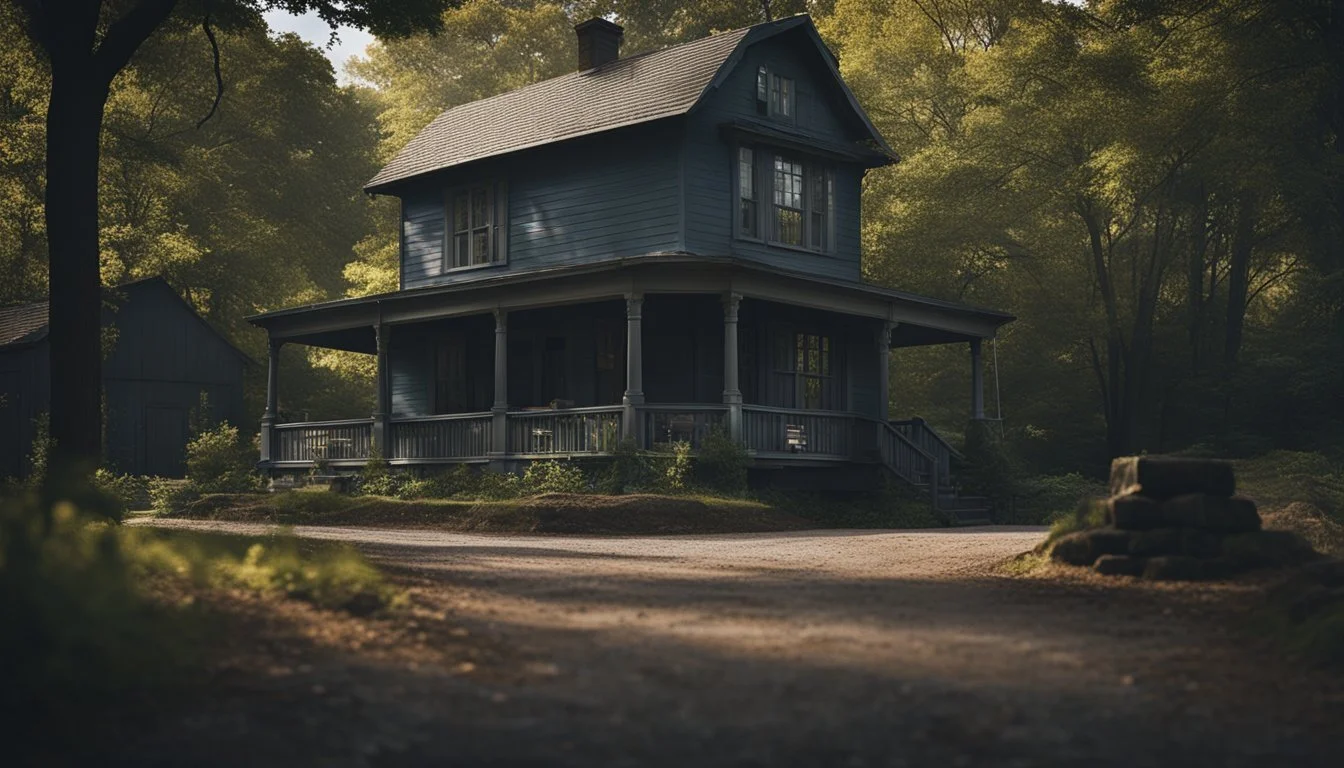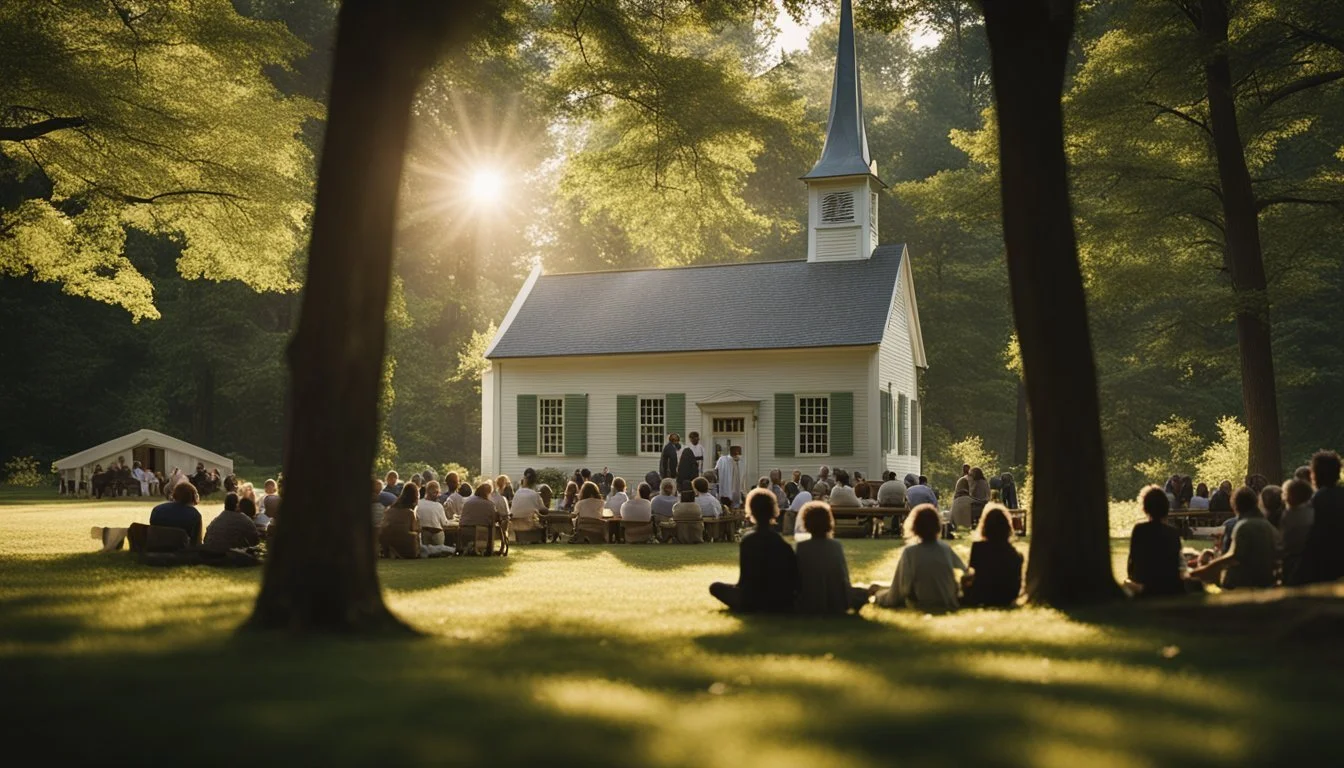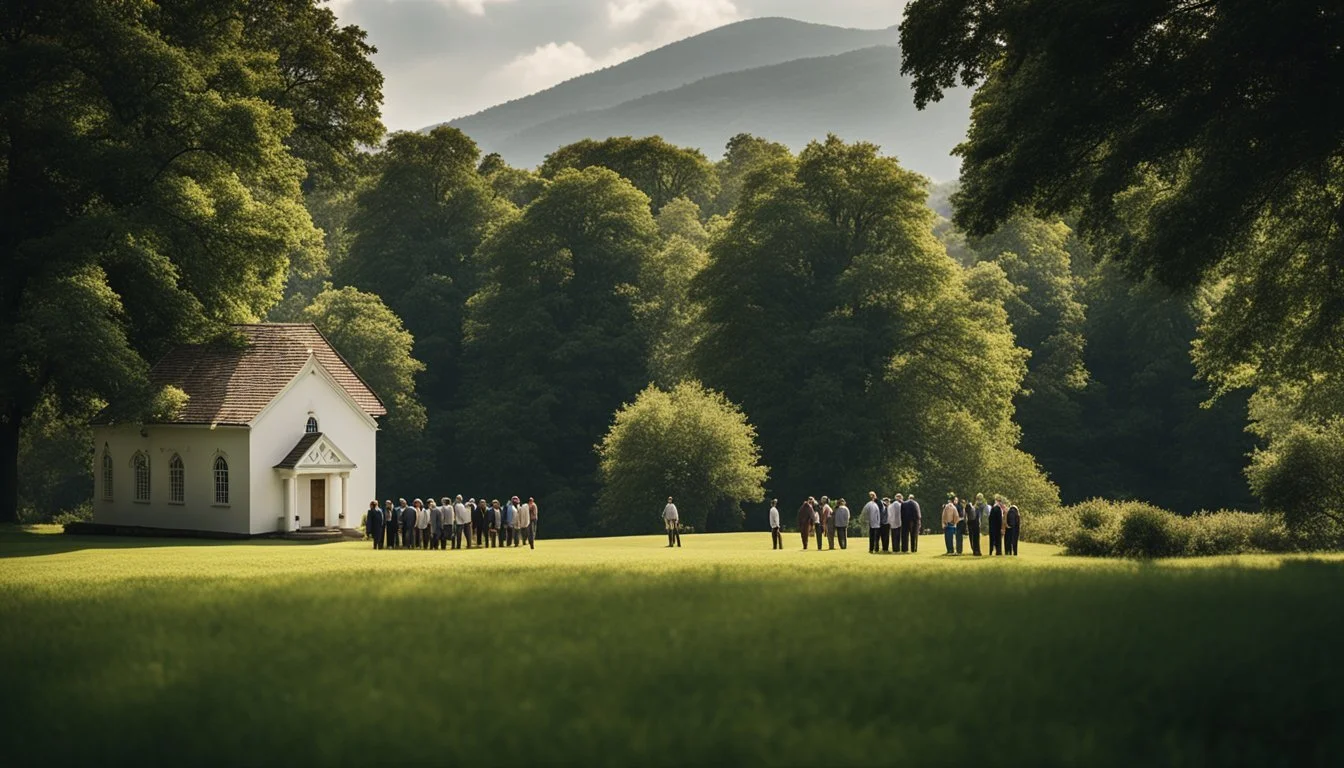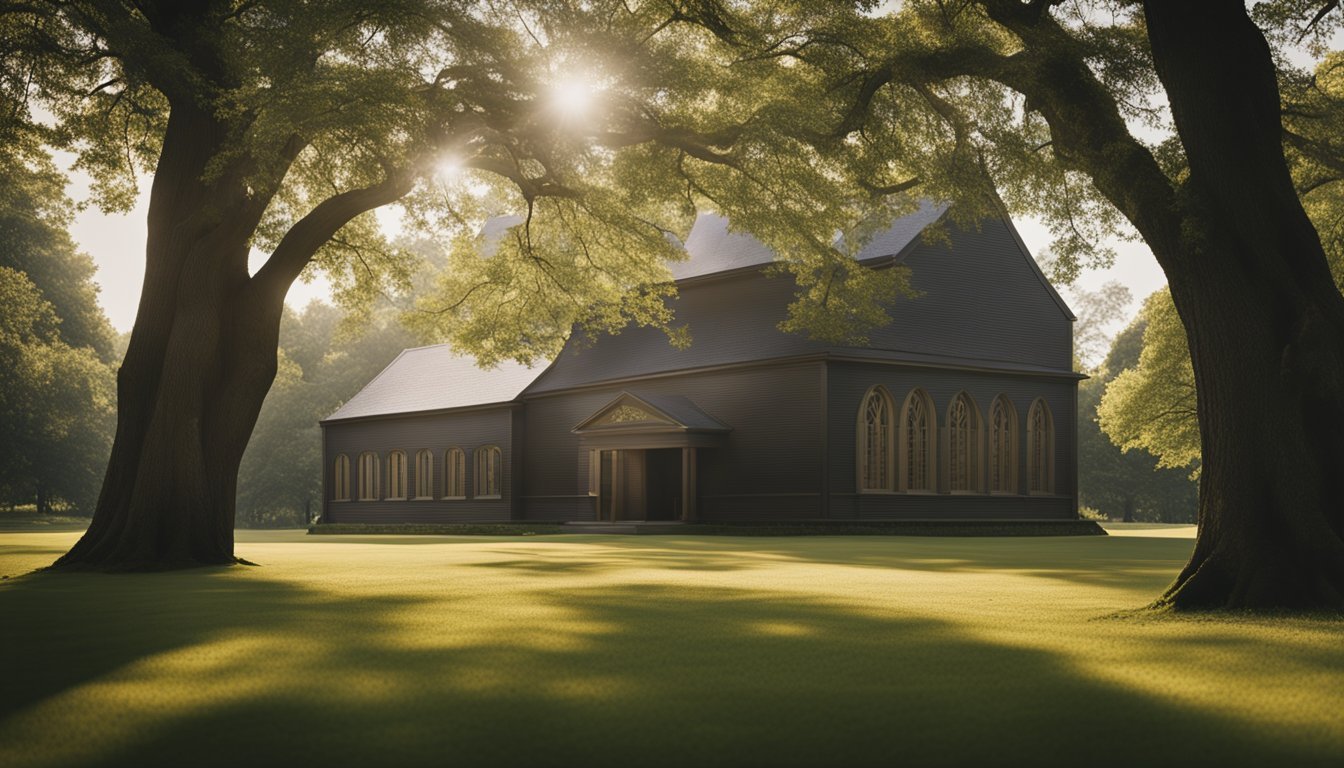5 True Crime Documentaries About Quaker Communities
Revealing Hidden Histories
True crime documentaries have captivated audiences for years, revealing the darker sides of communities that often go unnoticed. Among these, documentaries focusing on Quaker communities provide a unique blend of historical context and thorough investigative journalism.
The Quakers, known formally as the Religious Society of Friends, have a rich history that spans centuries, originating in 17th-century England. These documentaries expose the viewers to the intricate and sometimes harrowing experiences of Quaker communities involved in criminal cases, providing valuable insights into both their spiritual beliefs and societal challenges. By examining these cases through a true crime lens, viewers gain a deeper appreciation of the complexities within these otherwise peaceful communities.
1) The Silent Witness: Quaker Justice Unveiled
"The Silent Witness" (2024) delves into the criminal justice principles held by Quaker communities, focusing on the testimonies to peace and equality. The film presents an in-depth examination of how Quakers have influenced state policies on the use of force and justice.
Through a historical lens, the documentary explores Quaker activities in the 17th century that contributed to their unique perspective on justice. It highlights their commitment to non-violence and community, showcasing their impact on modern legal practices.
Using interviews, archival footage, and expert analysis, "The Silent Witness" captures the evolution of Quaker justice practices. The documentary features insights from historians and legal experts who explain the significance of Quaker philosophies in contemporary judiciary systems.
By emphasizing simplicity and moral integrity, the film portrays how Quaker beliefs have shaped a distinct approach to criminal justice, contrasting significantly with more punitive systems.
Watch "The Silent Witness" for a thorough understanding of how a religious community's principles can influence broader social and legal reforms. For more details, visit IMDb or Wikipedia.
2) Whispered Secrets: Quaker Mysteries
Whispered Secrets: Quaker Mysteries (2022) delves into the hidden lives within Quaker communities, exploring both historical and contemporary mysteries.
This documentary investigates unexplained events and secrets kept within these seemingly serene communities.
Highlighting real cases, it brings forward tales of intrigue, deception, and the struggle to maintain communal harmony amidst scandal.
For more information, visit the Wikipedia page.
3) Guilty By Faith: A Quaker Murder
Guilty By Faith: A Quaker Murder (2023) investigates a homicide within a close-knit Quaker community. The documentary takes an in-depth look at the cultural and religious principles that characterize Quaker life.
Quakerism, known for its emphasis on peace, transparency, and simplicity, provides a unique backdrop. The film explores the tension between the community's commitment to non-violence and the shocking act of murder.
The documentary portrays the struggle of a community seeking justice while holding onto its core beliefs. It delves into how the Quaker practice of silence and reflection influences the investigation.
The film provides a rare glimpse into the conflict between faith and criminal justice. Guilty By Faith combines interviews with experts, community members, and law enforcement to piece together the story.
4) Hidden Among Friends: The Quaker Code
"Hidden Among Friends: The Quaker Code" (2023) explores the little-known intersections between Quaker beliefs and true crime. The documentary delves into cases where moral dilemmas challenge Quaker principles.
The film highlights several historical incidents involving the Religious Society of Friends, focusing on their strict moral codes and how these have influenced criminal investigations.
Through interviews and reenactments, the documentary examines how these cases were resolved. It offers unique insights into the ethical stance of Quakers, especially regarding justice and punishment.
To understand more about this documentary, check out its IMDb page.
5) Quaker Vows: The Untold Crimes
"Quaker Vows: The Untold Crimes" (2022) is a compelling true crime documentary that explores hidden criminal activities within a seemingly peaceful Quaker community. The film delves into the dichotomy between the community's outward appearance of tranquility and the dark secrets that some members conceal.
The narrative centers around a series of mysterious disappearances and fraudulent schemes that rocked the Quaker community. It provides gripping accounts from survivors and investigative journalists who exposed the hidden underbelly of corruption and deceit.
Using archival footage and expert interviews, the documentary paints a vivid picture of how trust and faith were leveraged for nefarious purposes. The filmmakers meticulously piece together clues to reveal the shocking truths behind these crimes.
The gripping storytelling and factual presentation make this documentary a must-watch for those interested in the rarely discussed criminal elements within religious communities.
For more information, you can visit IMDB.
Historical Background of Quaker Communities
Quaker communities have a rich history marked by a unique set of beliefs and values. They have undergone significant growth and development over the centuries, influencing various aspects of society.
Founding and Beliefs
The Quakers, formally known as the Religious Society of Friends, were founded in the mid-17th century by George Fox in England. They emerged during a time of religious turmoil, advocating for a form of Christianity that emphasized direct experience of God through inner revelation.
Quakers are known for their commitment to pacifism, simplicity, equality, and social justice. They reject formal rituals and clergy, believing instead in the "Inner Light," which suggests that God's presence exists in every person. This belief fosters a sense of community and responsibility among its members.
The foundation of their faith stands on silent worship, where members gather in stillness, waiting for divine inspiration. This practice underscores their dedication to introspection and spiritual guidance.
Growth and Development
Quakerism spread rapidly in the late 17th and 18th centuries, both within England and to the American colonies. The first American Quaker communities emerged in Massachusetts and Rhode Island around 1656.
The Pennsylvania colony, founded by the prominent Quaker William Penn, became a significant center for Quaker activity. Penn's "Holy Experiment" aimed to establish a society based on Quaker principles of equality and religious tolerance.
Quakers played a notable role in social reforms, including the abolition of slavery, prison reform, and women's rights. Their businesses, characterized by ethical practices, gained respect and influence.
Through persistence and dedication to their core values, Quaker communities have left an indelible mark on history, contributing to progressive movements and maintaining a steadfast commitment to their founding beliefs.
Intersections of Quaker Ideals and Crime
Quaker communities are known for their strong adherence to principles such as pacifism and communal decision-making. These principles can intersect with crime in unique ways, influencing how Quakers address legal conflicts and community responses.
Pacifism and Legal Conflict
Quakers are deeply committed to pacifism, which often places them at odds with conventional legal systems. This dedication to nonviolence can impact their interactions with authorities and legal proceedings.
In many historical instances, Quakers refused to bear arms even in self-defense, leading to legal repercussions. George Fox, one of the Quaker founders, famously advised followers to live in such a way that they are "prepared to suffer the loss of all things" rather than commit violence.
This commitment has occasionally resulted in Quakers being prosecuted for refusing military service or even for aiding others in avoiding conscription. Their legal conflicts aren’t just about personal choices but represent a broader challenge to state mandates and societal norms around violence.
Community Responses to Crime
Quaker communities typically respond to crime through a collective and empathetic approach. Instead of focusing on punishment, they emphasize restitution and rehabilitation, rooted in their belief in "that of God in everyone."
Meetings for clearness and accountability are common practices. These gatherings allow members to discuss issues openly and find constructive solutions. They aim to restore relationships and provide support rather than retribution.
One noteworthy example is the Quaker-founded Alternatives to Violence Project, which works in prisons to teach nonviolent conflict resolution. This initiative reflects the broader Quaker philosophy of transforming adversarial relationships into mutually supportive ones through dialogue and understanding.
Notable Quaker Cases in True Crime Documentaries
True crime documentaries have occasionally explored cases involving Quaker communities, highlighting the tension between their peaceful principles and the stark realities of criminal investigations.
Analyzing Media Portrayals
Media portrayals of Quaker communities in true crime documentaries often emphasize the contrast between Quaker values of peace and simplicity and the unexpected presence of crime. Documentaries frequently depict how these communities face moral dilemmas and the challenges of maintaining their ethical standards in the face of criminal incidents.
For instance, documentaries may focus on how Quaker principles influence community responses to crime, illustrating both the supportive nature of these communities and the inner conflicts they experience. These portrayals can shed light on the unique perspective Quakers bring to the justice system, often emphasizing restorative justice over punitive measures.
Impact on Quaker Image
The impact of depicting Quaker communities in true crime documentaries is multifaceted. Such portrayals can enhance the public's understanding of Quaker values, showing how these principles play out in real, often challenging, situations.
However, they also risk reinforcing stereotypes or creating misunderstandings about Quaker practices and societal roles. Careful attention to representation is crucial, ensuring that the focus remains on accurate and respectful storytelling, which acknowledges both the distinctiveness and the universal aspects of Quaker communities in dealing with crime.

